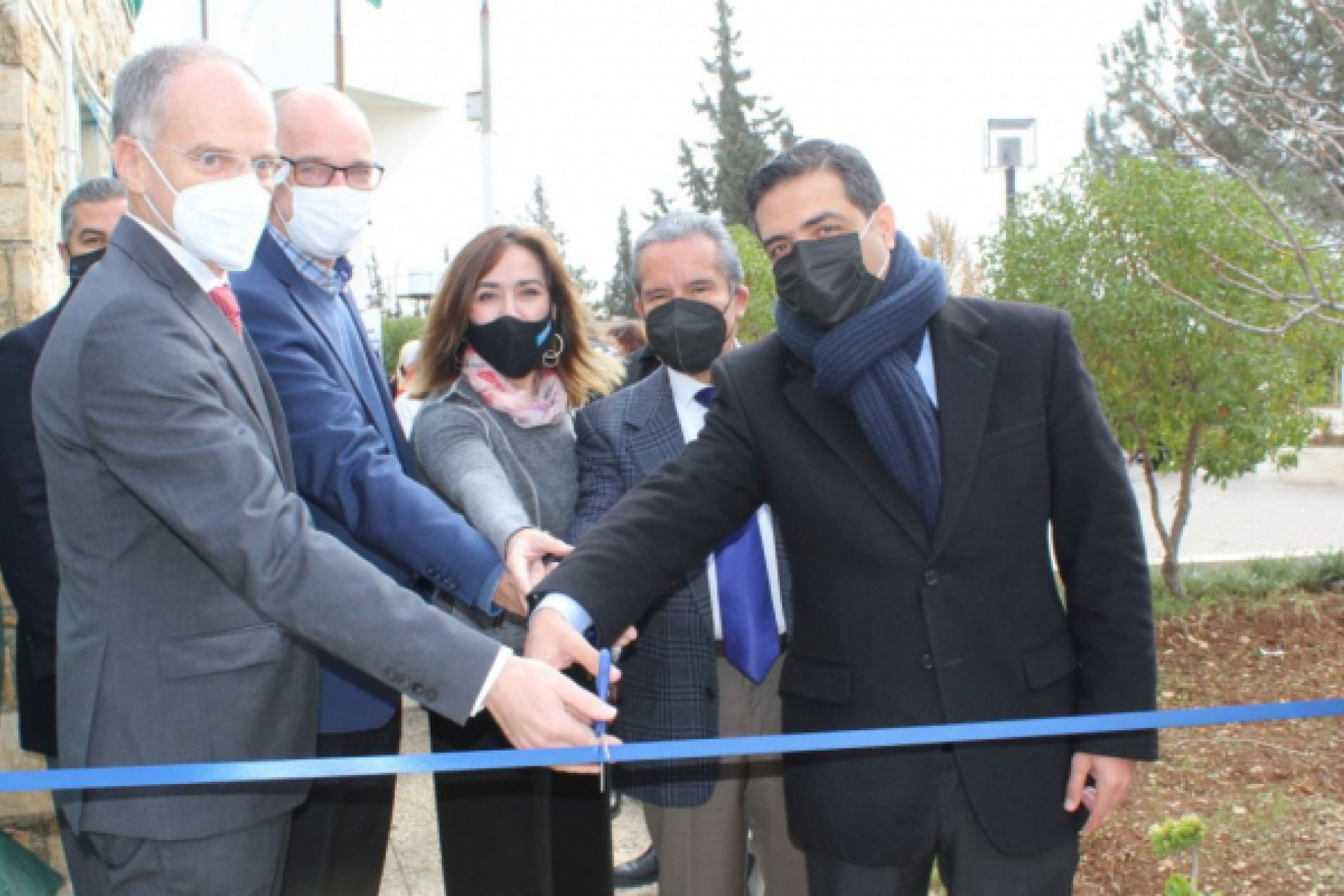عمان- افتتحت جمعية قرى الأطفال SOS الأردنية بيوت الضيافة المؤقتة للنساء المعنفات في كل من قريتي أطفال SOS عمان وإربد، تحت رعاية مدير إدارة حماية الأسرة والأحداث العقيد فراس الرشيد. وتهدف بيوت الضيافة لتوفير بيئة آمنة للنساء المعنفات وأطفالهن والمساهمة في بناء قدراتهن الذاتية ضمن برامج تدريبية متعددة لدعم معيشتهن إلى جانب تقديم خدمات الدعم النفسي والقانوني والاجتماعي لهن من خلال مركز مجتمعي يقدم هذه الخدمات في القرى.
وحضر الافتتاح وزير التنمية الاجتماعية أيمن المفلح والسفير النمساوي والسفير المكسيكي والمدير الإقليمي لقرى الأطفال وعدد من مدراء المؤسسات الوطنية والشركاء، حيث استمعوا لشرح عن الخدمات التي ستقدمها بيوت الضيافة للنساء المعنفات واطلعوا على مرافق هذه البيوت.
وتشمل الخدمات المقدمة رعاية وإيواء المنتفعات من السيدات اللواتي تعرضن للعنف المبني على النوع الاجتماعي وأطفالهن في البيوت الآمنة، والحصول على خدمات إدارة الحالة والدعم النفسي والقانوني والتمكين الاقتصادي من خلال التدريب على أحد المشاريع المدرة للدخل البدء بمشروع خاص بهن، إلى أن يتم حل قضاياهن بالتنسيق مع الجهات الرسمية، وبحيث تكون مدة الإقامة في البيوت الآمنة لكل منتفعة وأطفالها ثلاثة شهور قابلة للتمديد بحد أقصى ستة شهور. وهذا يأتي استجابة للتوجهات الوطنية وخطة عمل وزارة التنمية الاجتماعية.
ويأتي هذا المشروع بالتعاون مع إدارة حماية الأسرة والأحداث/ مديرية الأمن العام ووزارة التنمية الاجتماعية وعدد من المؤسسات الشريكة هي المجلس الوطني لشؤون الأسرة واللجنة الوطنية الأردنية لشؤون المرأة واتحاد المراة الاردنية ومؤسسات تقديم الدعم القانوني.
وأوضحت المديرة الوطنية لقرى الأطفال رنا الزعبي أهمية افتتاح هذا المشروع والذي سيغطي فجوة في الخدمات المقدمة للأمهات حيث أنه يوفر منزلاً للأم وأطفالها حتى سن الرابعة عشرة بعيداً عن مصدر العنف لحين حل مشكلتهم. وبنفس الوقت سيعمل المشروع على تمكين هذه الأسرة للانخراط بالمجتمع بعد توفير الدعم المحتاجين له ضمن نظام رعاية مفتوح.
فيما أشار مدير إدارة حماية الأسرة والأحداث العقيد فراس الرشيد إلى أهمية مشروع (ملاذ) والذي جاء مسانداً لوزارة التنمية الإجتماعية وحماية الأسرة، لتفرّده بإيواء المعنفات مع أطفالهن في المملكة وخاصة في محافظتي إربد والعقبة والعاصمة عمان، وذلك بتوجيهات ملكية سامية، خاصة مع ازدياد حالات العنف الأسري مؤخراً، نظراً لتأثير جائحة كورونا وأن هذا المشروع المشترك سيعمل على التخفيف عن مراكز الوزارة الخاصة بالمعنفات.
من ناحيته قال وزير التنمية الاجتماعية أيمن المفلح أن هناك أربع عناصر للعنف الأسري وهي الرجل والمرأة والطفل والأسرة ككل، ومن شأن الجهود المشتركة بين وزارة التنمية الاجتماعية ومديرية الامن العام وإدارة حماية الأسرة التقليل من العنف الأسري الذي ازداد مع الظروف الاقتصادية والبطالة وجائحة كورونا وتبعاتها، كما يأتي افتتاح هذا المشروع مكملاً لهذه الجهود.
ومن الجدير بالذكر أن جمعية قرى الأطفال تقدم الرعاية البديلة للأطفال فاقدي السند الأسري كما تقدم الدعم للشباب والشابات حتى عمر 24 سنة لمساعدتهم للوصول لمرحلة الإستقلالية. يمتاز نموذج الرعاية في قرى الأطفال بتوفير رعاية متكاملة من خلال المسكن والأمن غذائي والتعليم والرعاية الصحية والنفسية والتمكين والأمن الاقتصادي والحماية والدمج المجتمعي في جو أسري دافئ. وتعمل الجمعية ضمن المبادئ التوجيهية للرعاية البديلة للأطفال واتفاقية حقوق الطفل الصادرة عن منظمة الأمم المتحدة؛ حيث تأتي أهداف الأمم المتحدة للتنمية المستدامة ضمن محور عمل الجمعية واستراتيجتها.
